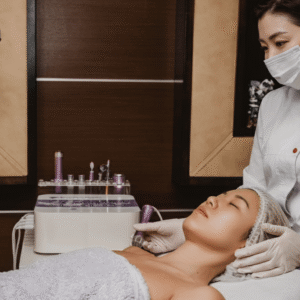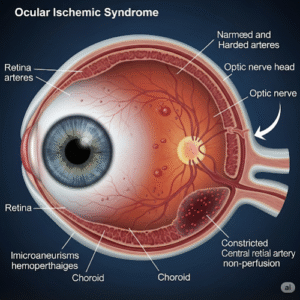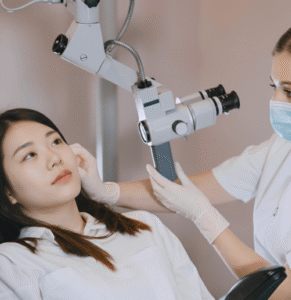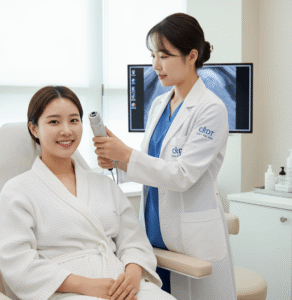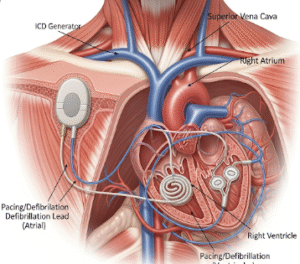In South Korea, breast cancer has become one of the most prevalent cancers among women — but it’s also one of the most treatable when detected early. Thanks to widespread awareness campaigns, advanced screening technologies, and strong national support systems, Korea has built one of the most effective breast cancer prevention and care networks in Asia.
Through a combination of education, community outreach, and medical innovation, the country empowers women to take charge of their health and ensures that no one faces the battle against breast cancer alone.
Rising Awareness: A Shift Toward Early Detection
Over the past decade, breast cancer awareness in Korea has grown rapidly. The cultural stigma once associated with cancer discussions has begun to fade, replaced by open conversations, proactive health checks, and public education.
• Early screening saves lives: In Korea, the five-year survival rate for breast cancer exceeds 90%, thanks to early detection through mammography and ultrasound.
• Government campaigns: Annual awareness drives in October (Breast Cancer Awareness Month) encourage women to get checked.
• Public figures and celebrities: Influencers and survivors share their experiences, helping normalize the conversation about breast health.
Important: Awareness is not just about fear — it’s about empowerment, education, and understanding that early diagnosis leads to successful treatment.
National Screening Programs
Korea’s healthcare system includes a strong national screening initiative designed to detect breast cancer in its earliest stages.
• National Cancer Screening Program (NCSP): Provides free or low-cost mammograms every two years for women aged 40 and above.
• Mobile screening units: Travel to rural areas to ensure women everywhere have access to diagnostic services.
• Ultrasound screening for dense breasts: Since many Korean women have denser breast tissue, doctors often use high-resolution ultrasound in addition to mammography.
• Digital medical records: Screening results are securely stored in national health databases, making follow-up care easier and faster.
These programs demonstrate how universal healthcare and early detection can work hand in hand to save lives.
Advanced Diagnostic and Treatment Technologies
Korea’s hospitals are equipped with world-class facilities that integrate cutting-edge technology into breast cancer care.
• AI-assisted mammography: Artificial intelligence helps radiologists detect even tiny abnormalities that the human eye might miss.
• 3D tomosynthesis (digital breast imaging): Provides clearer, more detailed images for accurate diagnosis.
• Precision medicine: Genetic testing helps doctors customize treatment plans based on each patient’s DNA and cancer profile.
• Minimally invasive surgery: Techniques like sentinel lymph node biopsy and onco-plastic breast-conserving surgery improve recovery and cosmetic outcomes.
• Targeted therapies and immunotherapy: New drugs such as trastuzumab and checkpoint inhibitors are improving survival rates for advanced-stage patients.
Hospitals such as Samsung Medical Center, Asan Medical Center, and Seoul National University Hospital lead the nation in breast cancer research and personalized treatment innovation.
Education and Awareness Campaigns
Public education remains one of the strongest tools in Korea’s fight against breast cancer.
• Pink Ribbon Campaign: A global movement widely embraced in Korea. Organized by the Korea Breast Cancer Foundation (KBCF), it promotes awareness through fundraising events, media campaigns, and educational workshops.
• “Pink Run” charity marathons: Held annually in cities like Seoul, Busan, and Daejeon, with proceeds going toward patient support and early detection programs.
• Community seminars: Hospitals and NGOs host regular workshops teaching self-examination techniques and lifestyle tips to prevent cancer.
• Corporate partnerships: Companies join awareness drives, encouraging female employees to take time off for screenings.
Tip: Women are encouraged to perform a self-breast exam monthly after menstruation — a simple yet powerful habit that can lead to early discovery.
Support Programs for Patients and Families
Breast cancer treatment is not only medical — it’s emotional, social, and financial. Korea offers comprehensive support networks to ensure that patients and their families never feel isolated.
1. Counseling and Emotional Support
• Many hospitals have on-site psychologists and social workers specializing in cancer care.
• Support groups and survivor communities help women share experiences and build resilience.
• Online platforms and apps offer mental health check-ins and guidance for those in recovery.
2. Financial Assistance
• The National Health Insurance Service (NHIS) covers a large portion of cancer treatment costs, including surgery, chemotherapy, and radiation therapy.
• Low-income patients can receive additional help through the Cancer Patient Support Fund managed by the Korea Cancer Association.
• Several NGOs offer grants and medication support for women in financial hardship.
3. Rehabilitation and Lifestyle Programs
• Post-surgery rehabilitation programs provide physiotherapy to restore arm mobility and reduce swelling (lymphedema).
• Nutritionists guide patients on immune-boosting diets for recovery.
• Yoga, meditation, and music therapy programs support emotional healing and relaxation.
These programs represent a holistic approach — focusing on both the body and spirit during and after treatment.
Research and Innovation: Building a Healthier Future
Korean scientists are actively working to improve breast cancer prevention, diagnosis, and therapy.
• Genomic research: Institutions like the Korea Research Institute of Bioscience and Biotechnology (KRIBB) are mapping genetic markers to better predict cancer risk.
• Stem cell therapy studies: Ongoing trials explore regenerative solutions for post-surgery reconstruction.
• AI-based oncology platforms: Machine learning systems personalize treatment schedules and track recovery progress.
• Breast cancer vaccine research: Korean biotech companies are testing immune-based preventive therapies.
This commitment to innovation ensures that Korean women benefit from the most advanced and evidence-based treatments available anywhere in the world.
Community Empowerment and Survivor Advocacy
Survivors play a vital role in raising awareness and offering hope. Across Korea, survivor-led organizations help women rebuild confidence and advocate for better healthcare access.
• Korea Breast Cancer Foundation (KBCF): Provides education, free screening vouchers, and family counseling.
• Pink Ribbon Angels: A volunteer network of survivors who mentor newly diagnosed patients.
• Healing retreats: Wellness-focused programs in Jeju and Gangwon provide rest, recovery, and community for survivors.
Inspiring message: Survivors often participate in national media campaigns, reminding others that early detection can turn fear into strength.
Public Health and Government Initiatives
The Korean government continues to strengthen its fight against breast cancer through policy and community health strategies.
• National Cancer Control Plan: A comprehensive roadmap promoting prevention, early diagnosis, and survivor care.
• Subsidized mammogram programs: Expanded access for women in low-income or rural areas.
• Data-driven healthcare: National databases track outcomes and guide resource allocation.
• Public-private collaboration: Encourages innovation in diagnostics, awareness, and patient support.
These coordinated efforts ensure that awareness, accessibility, and compassion remain at the heart of Korea’s breast cancer response.



